Cygnus Law has published a detailed Guide to Equity Crowdfunding. In this blog I have included the first section, which explains key aspects of equity crowdfunding in New Zealand. If you would like to know more see the full guide. If you would like to discuss please contact Simon Papa (+64 (0)22 644 7193, simon@cygnuslaw.nz).
What is Equity Crowdfunding?
Equity crowdfunding (ECF) is about companies that raise capital by offering new shares to investors via NZ-licensed online platforms. ECF provides an opportunity to obtain investment from a large number of investors who invest relatively small amounts. What sets equity crowdfunding apart from other ways of raising capital is that it is a fairly easy and cost-effective way to offer shares to the general public.
ECF in this form became possible in 2014. Since then dozens of companies have successfully raised capital using ECF through NZ-licensed platforms.
ECF is different from rewards and donations-based crowdfunding, which do not provide for investments. Instead they involve either getting a reward (e.g. a concert ticket, a book) for a financial contribution or simply giving to a good cause.
ECF is just one way that companies can raise capital. There are many other potential options including funding from founders, angel investors, government grants and bank loans.
Who can equity crowdfund?
Only companies (from NZ and overseas) can equity crowdfund through the NZ-licensed platforms. ECF can be used by companies in a wide range of businesses and of varying sizes. ECF is particularly popular with technology companies and companies with strong consumer brands (e.g. food & beverage businesses).
Can social enterprises equity crowdfund?
Only companies can equity crowdfund via licensed platforms. Directors of NZ companies are mostly required to act in the best interests of shareholders. Unlike countries such as the United States (with its “B Corporation” regime), there is no form of New Zealand company that can have, as a key goal, providing a public benefit. However, a New Zealand company can legitimately seek to support good causes (e.g. environmental, social) where that forms part of its business model.
Why should I use equity crowdfunding?
The key benefit of ECF is that you get an exemption from the quite stringent legal obligations for public share offers, including those relating to disclosure (there are other exemptions available but they don’t support offers to the general public). This means that it is generally simpler and cheaper to run an ECF campaign, compared to a traditional public share offer. To benefit from the exemption you have to make the offer via a NZ-licensed platform. ECF can provide other potential benefits, including as a way to:
- promote your products or services, and brand, to a wider audience
- attract passionate shareholder customers who may act as brand champions
- identify and reward loyal customers through discounts & other benefits linked to the shares
- provide greater focus for the business.
The platforms themselves can provide added benefit, including because they provide:
- online tools that simplify the share offer process
- support to get the company ready for an offer
- access to the platform’s own “crowd” who may invest in your offer.
The ECF process can have benefits even if you don’t go through with an offer or if the offer isn’t successful. The process of getting investment ready will, in itself, likely help you to focus more on the business’ future, and to prepare the business for its next steps.
How much can I raise using ECF?
A company can raise up to $2m in any 12 month period via ECF on a licensed platform (you may also be able to raise additional capital through other channels at the same time). There are no caps on how much each investor can invest. There are some additional conditions- see the more detailed How much can I raise? section of the Guide for more information.
What are the limitations on equity crowdfunding?
In addition to the $2m cap, there are other specific legal limitations on offers made via ECF, including:
- You can only offer shares in a company.
- You cannot offer options to buy shares or other types of convertible securities (including shares that can convert into another type of security).
- You cannot sell existing shares using ECF- you can only issue new shares (see How Do I Manage Post-Offer Share Sales? for information on share sales).
- The funds raised cannot be used solely to purchase shares (or other financial products) except shares that could otherwise be offered using ECF (see the “nominee company” condition in the standard conditions for crowdfunding platforms- an exemption to might be available in special cases).
- “Investment companies” are prevented from using ECF when they offer certain classes of shares or have certain types of entrenched service providers. An “investment company” is, in broad terms, a company that invests in financial assets or real estate. The FMA interprets “investment company” to cover a company that carries out property development, including new builds for sale. However, property-based crowdfunded offers are possible. The FMA has an “information sheet” for platforms that want to support property-based offers- potential offerors may find it helpful also.
- The ECF exemption (discussed above under “Why should I use equity crowdfunding?”) only applies to offers to people in New Zealand (see the Can I Offer Shares Outside New Zealand? section of the Guide for information on making offers outside New Zealand).
What should I tell potential investors?
You need to provide investors with summary information that presents a “fair view” of the company, the business and your plans for the investment. That information should be presented in a way that’s easy to understand. See the Disclosure to Investors sections of the Guide for more information on what you can and should tell potential investors.
Which platform should I use?
Each platform has a particular market focus, way of operating and special features. It’s best to do research and to talk to the platforms, to see which is the best fit for you. The NZ-licensed platforms are:
- Collinson Crowdfunding (a client of Cygnus Law)
- Crowdsphere
- Crowd88
- Equitise
- PledgeMe
- Snowball Effect
- The Property Crowd
Each platform has its own terms & conditions – some common terms & conditions are considered in the What Do Equity Crowdfunding Platforms Do? section of the Guide.
Do I need professional help?
Yes. While ECF is relatively simple (compared to traditional public offers) there are basic things you need to get right, including in relation to issuing new shares and disclosure of financial information. In some cases there may be benefit in getting help with other aspects of an offer e.g. in relation to marketing (including help to produce a video).




